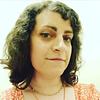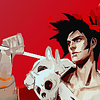Take a photo of a barcode or cover
adventurous
funny
lighthearted
medium-paced
Plot or Character Driven:
Character
Loveable characters:
Yes
Diverse cast of characters:
Yes
Flaws of characters a main focus:
No
adventurous
emotional
funny
hopeful
inspiring
lighthearted
fast-paced
Plot or Character Driven:
A mix
Strong character development:
Yes
Loveable characters:
Yes
Diverse cast of characters:
Complicated
adventurous
funny
medium-paced
Plot or Character Driven:
Character
Strong character development:
Yes
Loveable characters:
Complicated
Diverse cast of characters:
Complicated
Flaws of characters a main focus:
No
Uncle Terry does a bit of examination on gender roles in society against the backdrop of a semi-Crimean war tableau. I think a setting like that (considering the horrors of the conflict it was inspired by) does kinda bump up against the limitations of the family-friendly Discworld.
Curious what Terry woulda cranked out with trans people more in the public eye nowadays. There's at least one character here I'm pretty sure would be a trans masc icon if there wasn't a "reveal" moment whereafter they get referred to as "she."
Curious what Terry woulda cranked out with trans people more in the public eye nowadays. There's at least one character here I'm pretty sure would be a trans masc icon if there wasn't a "reveal" moment whereafter they get referred to as "she."
adventurous
funny
inspiring
lighthearted
medium-paced
Plot or Character Driven:
A mix
Strong character development:
Yes
Loveable characters:
Yes
Diverse cast of characters:
Yes
Flaws of characters a main focus:
No
adventurous
funny
inspiring
fast-paced
Plot or Character Driven:
Plot
Strong character development:
Yes
Loveable characters:
Yes
Diverse cast of characters:
Complicated
Flaws of characters a main focus:
Yes
adventurous
funny
hopeful
medium-paced
Plot or Character Driven:
A mix
Strong character development:
Yes
Loveable characters:
Yes
Diverse cast of characters:
Yes
Flaws of characters a main focus:
Yes
TRANS? IN MY DISCWORLD? more likely than you think!!!!!!!!!! banger
adventurous
challenging
dark
funny
hopeful
mysterious
tense
fast-paced
Plot or Character Driven:
A mix
Strong character development:
Yes
Loveable characters:
Yes
Diverse cast of characters:
Yes
Flaws of characters a main focus:
No
Another in my Discworld reread and I have to say one of the best - im surprised at myself that I haven’t read this book more in the past as I have done with several other discworld books.
As usual, very funny, but also surprisingly violent - at least more viscerally so than some other TP books - and exciting throughout. Some good, interesting commentary on the role of women in wars.
As usual, very funny, but also surprisingly violent - at least more viscerally so than some other TP books - and exciting throughout. Some good, interesting commentary on the role of women in wars.
adventurous
emotional
funny
hopeful
reflective
sad
slow-paced
Plot or Character Driven:
A mix
Strong character development:
Complicated
Loveable characters:
Yes
Diverse cast of characters:
Yes
Flaws of characters a main focus:
Yes
adventurous
funny
lighthearted
fast-paced






